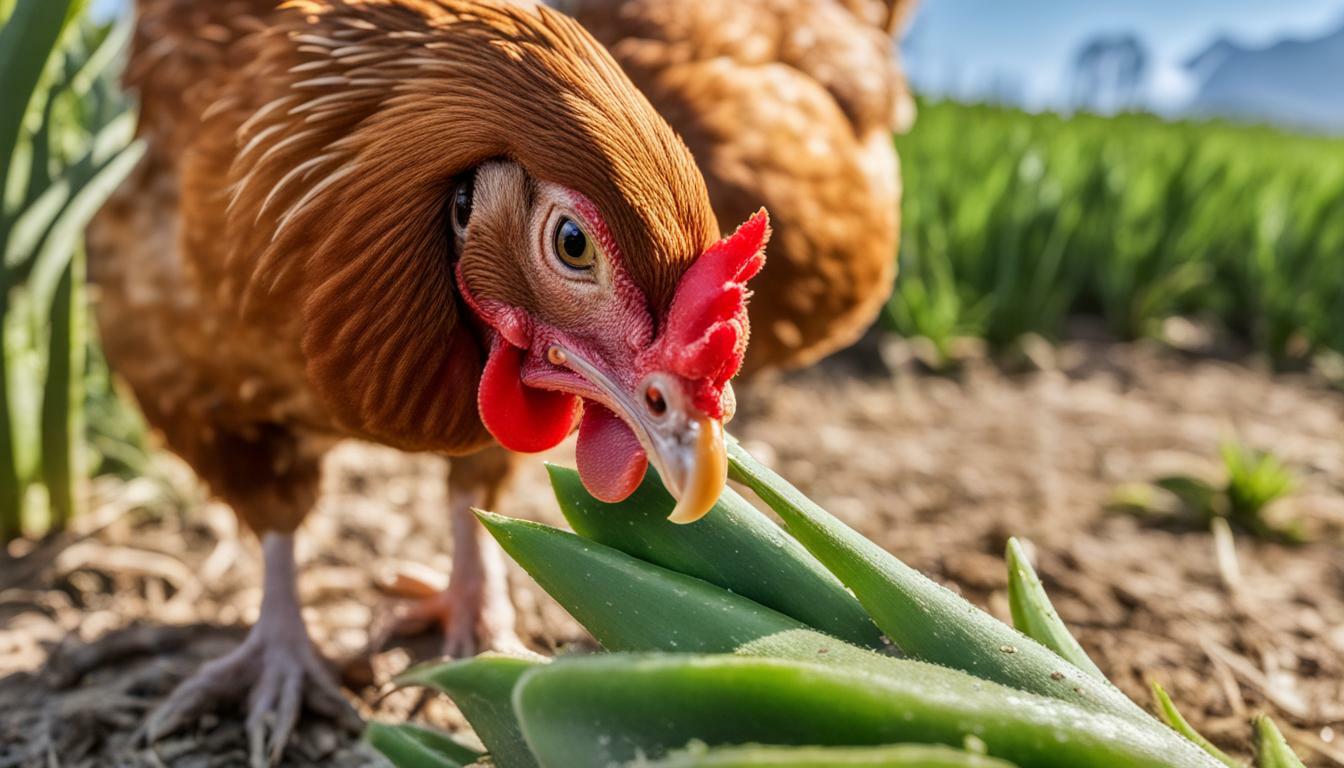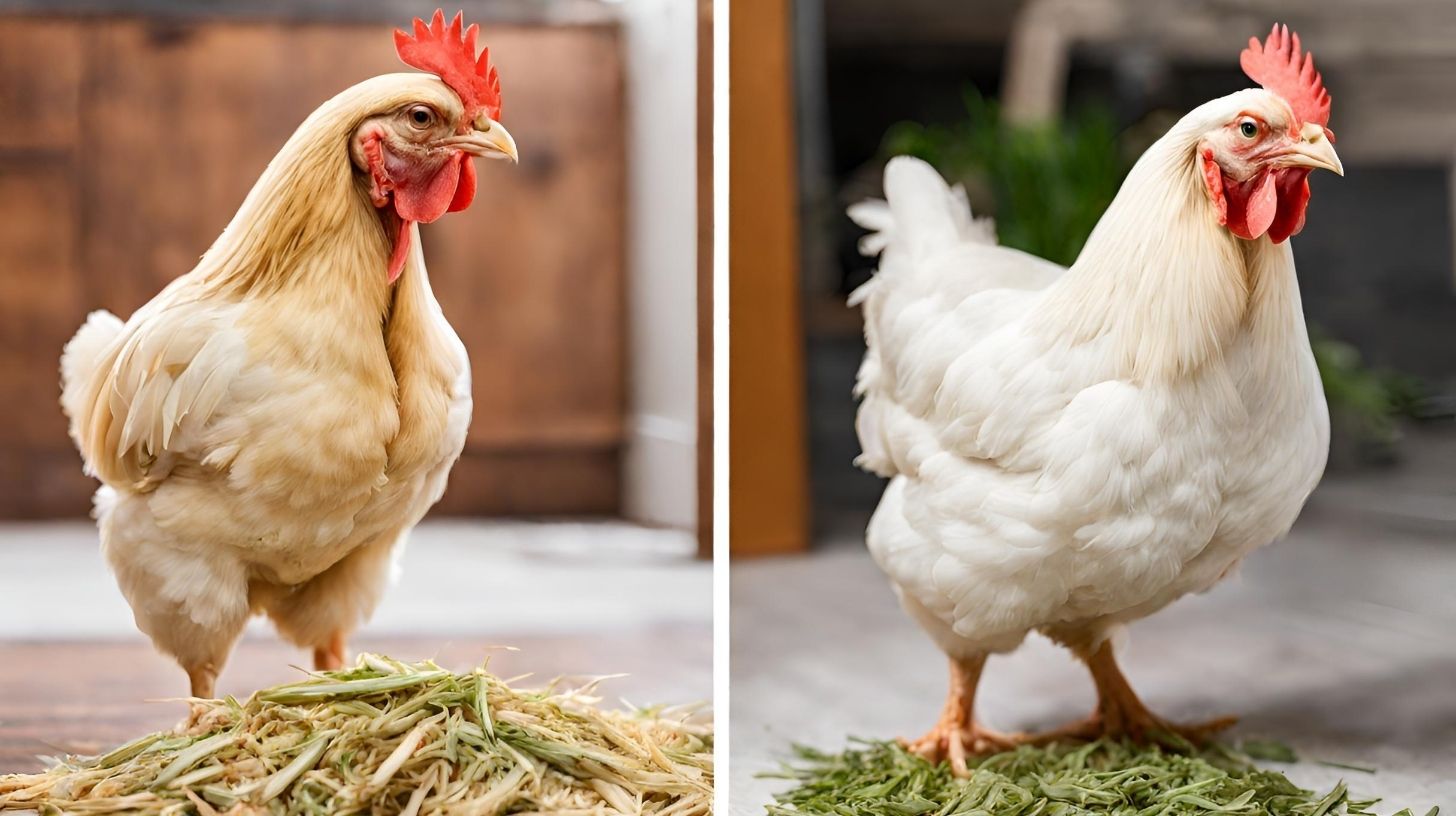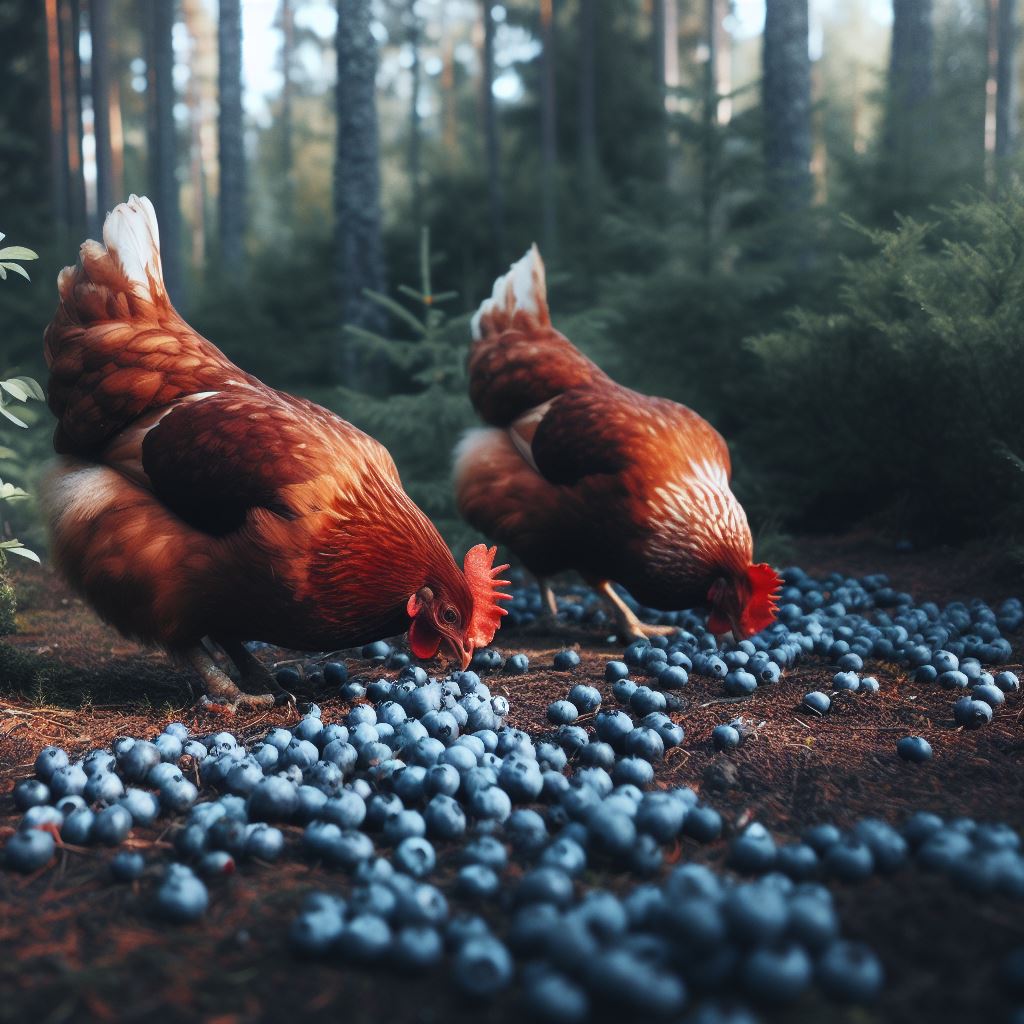Do Chickens Eat Black Widow Spiders?
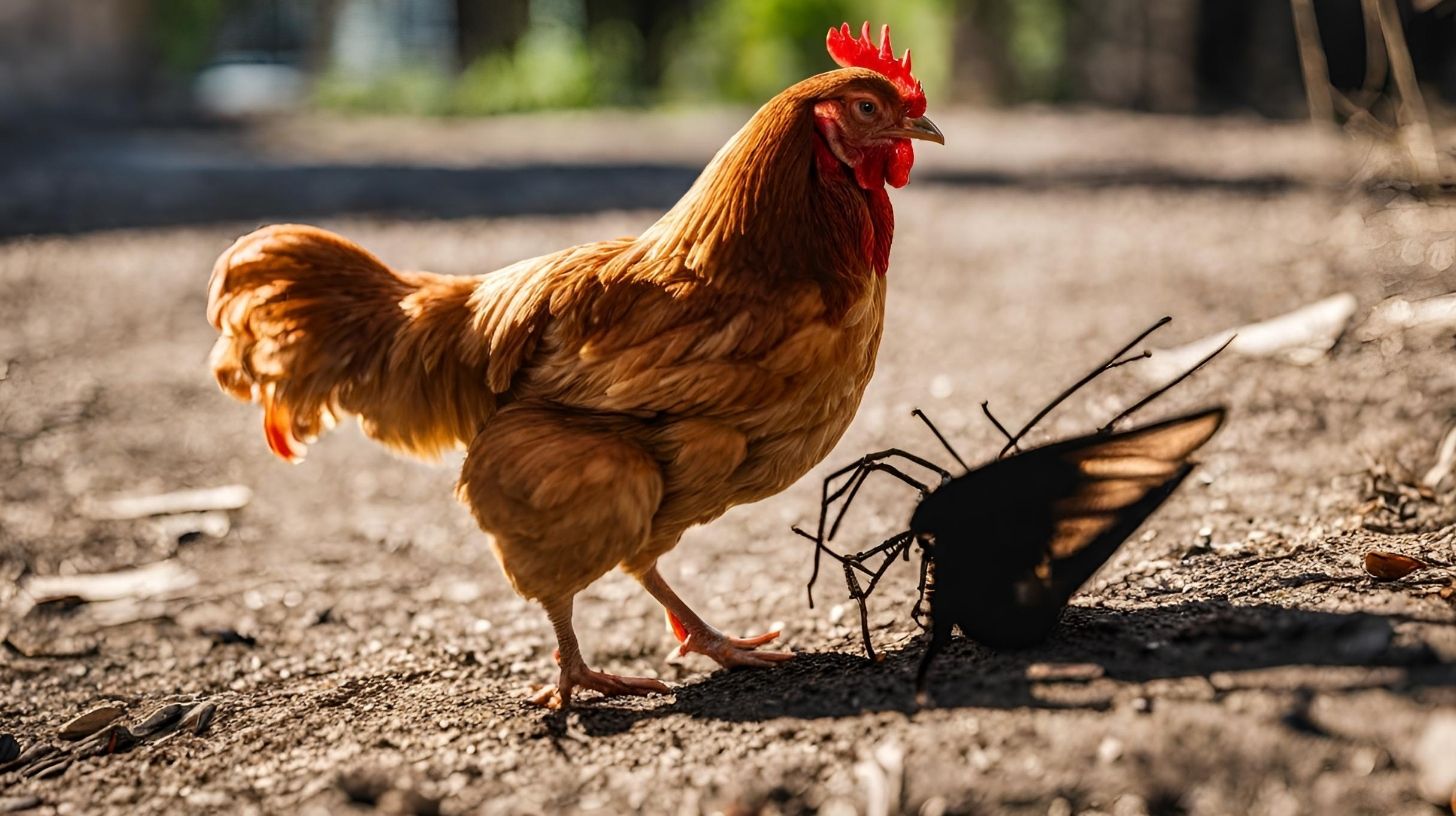
Table of content:
- Will Chickens Hunt and Eat Black Widow Spiders?
- Are Black Widow Spiders Toxic to Chickens?
- Best Practices for Keeping Chickens Away from Black Widows
- Do Roosters Eat Black Widows?
- Will Chickens Eat Other Types of Spiders?
- Do Baby Chicks Eat Black Widow Spiders?
- Do Silkie Chickens Eat Black Widows?
- Frequently Asked Questions about Chickens and Black Widows
- Are there symptoms if a chicken eats a black widow?
- How many black widows would it take to kill a chicken?
- Do black widows infest chicken coops?
- Can chickens eat the black widow’s web?
- Will chickens eat other venomous spiders?
- How can you tell if a chicken ate a black widow?
- Do black widows lay eggs near chickens?
- Conclusion
Do chickens eat black widow spiders? Chickens are natural omnivores that will eat a diverse range of foods to fulfill their nutritional requirements. When allowed to forage freely, chickens will consume grasses, seeds, fruits, vegetables, worms, flies, beetles, mosquitoes, larvae, and even small mice and lizards to obtain a balanced diet.
Key Takeaways:
- Chickens are omnivores and will eat insects like spiders to supplement their diet.
- Black widow spiders can be toxic to chickens if eaten in large quantities.
- Free-range chickens that forage are more likely to consume spiders and insects.
- While not a preferred food source, chickens may eat black widows to obtain protein.
- Chickens with access to diverse food sources are less likely to overconsume toxic spiders.
- Proper care and feeding can prevent chickens from seeking out potentially dangerous spiders.
Chickens kept in captivity are commonly fed commercial feed that contains the protein, carbohydrates, vitamins, and minerals they need. However, chickens with access to the outdoors will still scratch and scavenge the ground for additional sources of nutrients.
Will Chickens Hunt and Eat Black Widow Spiders?
The black widow spider is one of the most infamous and dangerous spiders in North America. Known for the distinctive red hourglass shape on its abdomen, the black widow gets its name from the tendency of female spiders to devour the male after mating. Black widows often weave messy cobwebs in undisturbed spaces and will emerge at night to hunt for prey.
Chickens are natural insectivores that will eagerly consume spiders and insects as part of their foraging behavior. Backyard chickens that have access to areas where black widows reside may hunt, kill, and eat these spiders as a protein-rich snack.
Chickens use their sharp beaks to capture and swallow spiders whole. Their beaks are used for pecking, grasping, and tearing apart food items. They have strong jaw muscles and a muscular gizzard that grind up and digest spider bodies rapidly.
Chicken Digestive Anatomy
| Part | Function |
|---|---|
| Beak | Grasping and tearing food |
| Esophagus | Transports food to stomach |
| Crop | Storage pouch for food |
| Proventriculus | Secretes digestive juices |
| Gizzard | Grinds and crushes food |
| Small Intestine | Nutrient absorption |
| Cloaca | Excretes waste |
While chickens will readily eat spiders found in their environment, black widows are not a preferred food source. Chickens instinctively prefer foods like worms, vegetation, seeds, and fruits over potentially toxic or dangerous prey. However, chickens allowed to free range may resort to eating black widows if more favorable foods are scarce.
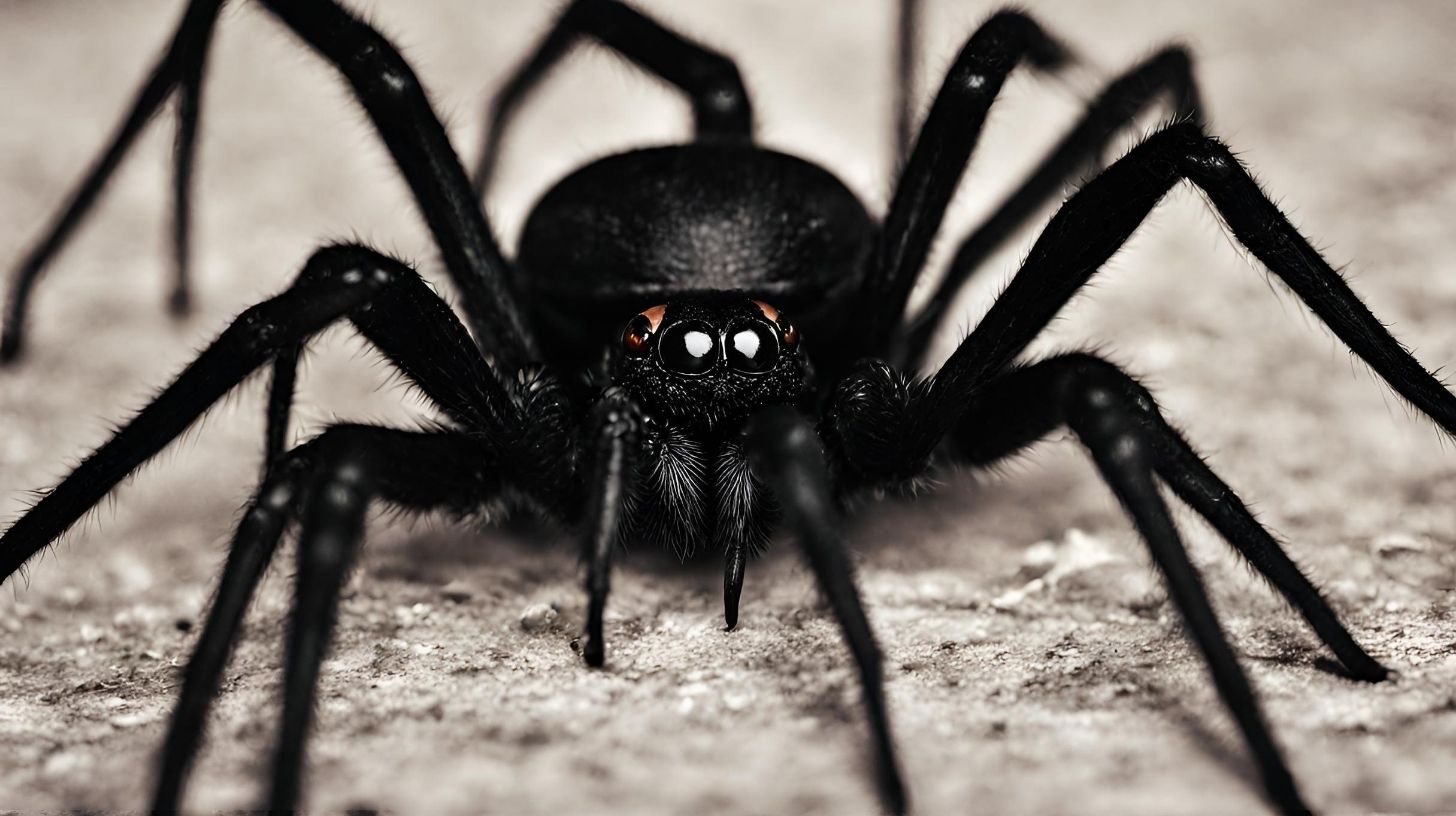 Are Black Widow Spiders Toxic to Chickens?
Are Black Widow Spiders Toxic to Chickens?
The black widow spider contains a potent neurotoxin called alpha-latrotoxin in its venom. This toxin can cause severe muscle spasms, abdominal cramping, and pain in humans if bitten. The venom is designed to quickly paralyze and kill the spider’s insect prey.
Many sources claim that the black widow venom holds little toxicity for chickens. Their rapid metabolism and muscular digestive system allow them to consume spiders without ill effects. However, research shows that ingesting black widow spiders can potentially be dangerous to chickens:
- Eating multiple black widows may allow toxic levels of venom to accumulate.
- Cases of spider envenomation have been reported in chickens.
- Alpha-latrotoxin may damage nerve endings in a chicken’s crop, esophagus, and digestive tract.
- Neurotoxins can potentially cause paralysis in a chicken’s throat muscles, making swallowing difficult.
So while chickens may frequently eat black widows with no issue, consuming multiple spiders in a short timeframe does carry a risk of poisoning. Chickens that develop symptoms like loss of appetite, difficulty swallowing, weakness, tremors, or paralysis after eating black widows should receive veterinary care.
Signs of Black Widow Envenomation in Chickens
| Symptoms | Description |
|---|---|
| Loss of appetite | Refusal to eat feed |
| Swallowing difficulty | Trouble swallowing food or water |
| Weakness | Lethargy, inability to stand |
| Tremors | Shaking of head, wings, legs |
| Paralysis | Inability to move parts of body |
Best Practices for Keeping Chickens Away from Black Widows
While occasional spider consumption is normal, chickens are safest when they avoid preying on black widows in their environment. Here are some tips to discourage black widow consumption:
- Provide a balanced, high-quality feed to reduce foraging needs.
- Allow chickens to free-range in areas without spider infestations.
- Use enclosed coops at night when black widows are most active.
- Practice integrated pest management to control black widows safely.
- Remove debris piles, clutter, and hiding spots where spiders nest.
- Apply desiccant dusts like diatomaceous earth to repel spiders.
- Install small mesh barriers around coops to keep spiders out.
- Use natural spider repellents like essential oils. Peppermint, citrus, and eucalyptus oils deter spiders.
- Introduce hen-safe predators like lizards or chickens to hunt widow spiders naturally.
With proactive control measures, owners can significantly reduce the presence of black widows and other dangerous spiders around their flock. This limits the risk of chickens preying on toxic spiders to supplement their nutritional needs.
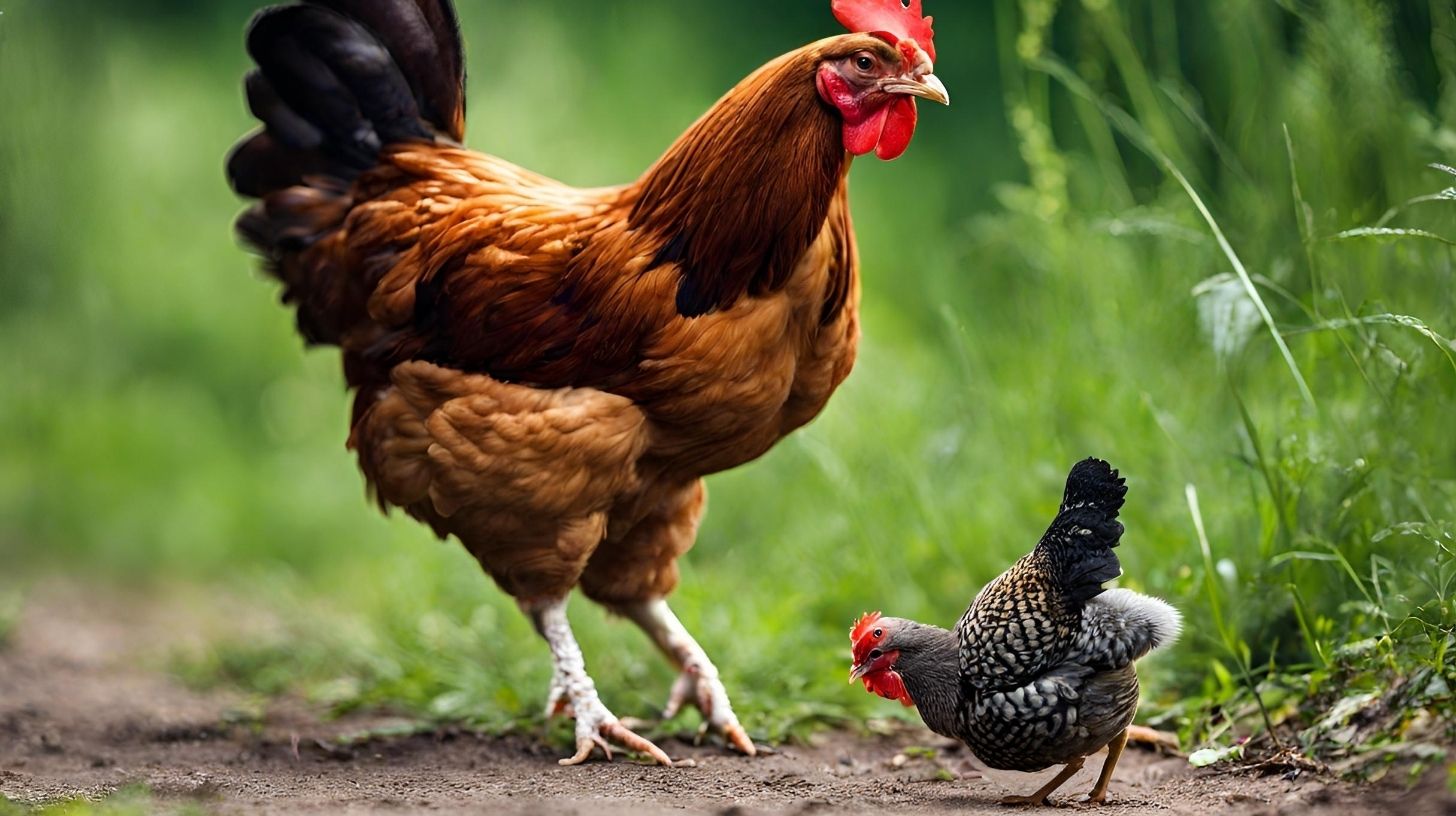 Do Roosters Eat Black Widows?
Do Roosters Eat Black Widows?
Roosters are adult male chickens over one year old. Along with hens, roosters are natural bug catchers that will eat spiders and insects as part of their diet.
Roosters allowed to free range are very likely to eat black widow spiders. They use their strong beaks to capture and kill spiders wandering in the open. Being larger than hens, roosters can consume more black widows before reaching a toxic threshold.
However, roosters are still susceptible to envenomation and paralysis if they eat multiple black widows in one sitting. Roosters experiencing muscle tremors, difficulty breathing, or an inability to walk after spider consumption require immediate medical attention.
Preventing Roosters From Eating Black Widows
The same management practices that protect hens also help deter roosters from preying on black widows:
- Provide adequate protein sources in feed to discourage foraging.
- Limit roosters’ access to areas where black widows live.
- Use nighttime housing and fencing to stop rooster foraging.
- Employ integrated pest control methods to reduce black widow numbers.
- Remove piles of wood, debris, and clutter where spiders nest.
- Apply natural spider repellents around the perimeter of the coop and run.
With some simple vigilance, owners can steer roosters away from toxic spiders lurking on the property. Monitoring their behavior and health daily allows prompt action if any signs of envenomation appear.
Will Chickens Eat Other Types of Spiders?
Chickens will readily eat almost any type of spider they can capture. Here are some other spiders chickens may consume while foraging:
Orchard Spiders
These large, round-bodied spiders build huge webs in gardens and open fields. Though not toxic, they can give a painful defensive bite.
Wolf Spiders
Wolf spiders actively hunt prey instead of spinning webs. Most are not harmful to chickens. However, the venom of large species like the Carolina wolf spider can cause reactions.
Jumping Spiders
Small jumping spiders pounce on prey instead of building webs. They pose little threat as their tiny fangs cannot pierce a chicken’s skin.
Crab Spiders
Crab spiders hide in flowers and ambush pollinators. They are not toxic to chickens in moderation. Multiple stings may cause minor swelling.
Grass Spiders
These funnel web spiders build sheets of webbing on turf. Their venom is mildly toxic but a chicken’s thick skin protects it from effects.
Fishing Spiders
Aggressive fishing spiders hunt near water. They have a painful, bee-like sting but limited venom. Multiple stings may sicken a chicken.
With over 40,000 spider species worldwide, chickens will eat any small types they find in their habitat. Bites from these spiders are mostly harmless thanks to the chicken’s size.
Do Baby Chicks Eat Black Widow Spiders?
Baby chicks hatch with most of their adult instincts intact. Young chicks called peeps begin exploring, pecking, scratching, and foraging for food from their very first days. When black widows are present, curious peeps may pick them off the ground and swallow them whole.
However, baby chicks are far more vulnerable to black widow venom than mature chickens:
- Their immune systems are underdeveloped, making them prone to illnesses.
- They lack the strong digestive acids and enzymes to break down toxins.
- Their tiny bodies contain little muscle or fat to dilute venom.
- Neurotoxins like alpha-latrotoxin can permanently damage their nervous systems.
A single bite from a black widow can potentially paralyze and kill a chick. Consuming multiple spiders almost invariably leads to death in peeps. Even non-lethal doses can cause lasting health issues.
Keeping Baby Chicks Away From Black Widows
Special precautions are necessary to safeguard vulnerable chicks from black widow exposure:
- Use enclosed brooders and chick pens to contain peeps.
- Cover pen floors with clean pine shavings to eliminate hideouts.
- Let chicks range only in areas where spiders are strictly controlled.
- Do not provide outdoor access until chicks are fully feathered and hardy.
- Monitor the pen frequently for signs of spiders. Remove any found immediately.
- Apply diatomaceous earth around the perimeter to deter spiders.
- Use essential oils like peppermint and tea tree oil to repel spiders from chick areas.
- Avoid keeping peeps in barns, sheds, or garages where black widows reside.
- Wait until 12-16 weeks to introduce chicks to the main flock and range area.
With attentive management during the critical early weeks, owners can prevent deadly black widow encounters in vulnerable chicks.
Do Silkie Chickens Eat Black Widows?
Silkie chickens are a popular ornamental breed known for their fluffy, hen-like plumage. Their feathers lack strong barbicels, giving them a soft, downy texture. The breed originated in China and is frequently kept as pets and exhibition birds.
Despite their gentle appearance, Silkies retain the strong insect-hunting instincts of any chicken. Their beaks, digestive system, and foraging behaviors are identical to any standard chicken. If kept free-range, Silkies will readily pursue and eat spiders, insects, mice, small frogs, and more to supplement their diet.
However, Silkies are no less vulnerable to black widow venom than ordinary chickens. Their fluffed feathers offer no protection from neurotoxic bites or stings. As Silkies are often kept more as companion birds than as egg producers, owners should take care to prevent them accessing areas where black widows live.
Frequently Asked Questions about Chickens and Black Widows
Many chicken owners have additional questions about the risks of chickens preying on black widow spiders. Here are some frequently asked questions with answers:
Are there symptoms if a chicken eats a black widow?
Chickens eating a single black widow are unlikely to show symptoms. Consuming multiple spiders may cause weakness, trembling, lack of appetite, or difficulty breathing within 2-12 hours.
How many black widows would it take to kill a chicken?
The venom tolerance varies based on the chicken’s size and age. Adult hens could die from eating 10-20 black widows. For a baby chick, just 1-2 spiders may be lethal.
Do black widows infest chicken coops?
Black widows prefer isolated, undisturbed areas and are rarely found inside active coops. However, they may nest in debris or woodpiles just outside the coop. Good sanitation discourages infestations.
Can chickens eat the black widow’s web?
Yes, chickens can safely eat spider silk. The web provides protein. Eating webs does not cause exposure to venom. Webs are more easily digested than the hard spider body.
Will chickens eat other venomous spiders?
Chickens may eat brown recluse spiders, six-eyed sand spiders, Sydney funnel web spiders, and other toxic varieties, usually with no issues. However, owners should try to limit consumption.
How can you tell if a chicken ate a black widow?
Check for symptoms like trembling, lack of appetite, weakness, and disorientation. Seeing black widow legs or other remains in the coop or run may confirm consumption.
Do black widows lay eggs near chickens?
Black widows often attach their egg sacs to surfaces near chicken coops and pens. Each sac contains 100-400 spiderlings that will hatch and grow rapidly when conditions are favorable.
Conclusion
In conclusion, chickens are curious omnivores that will eat black widow spiders they find while foraging. Occasionally eating a widow does not harm most chickens. However, repeated consumption can sicken or kill a chicken due to the neurotoxic venom.
Chick owners should use preventive measures to deter black widows and other dangerous spiders from areas where the flock lives. Carefully monitoring chickens for any signs of spider envenomation allows rapid veterinary treatment.
With proper management, chickens can benefit from free ranging without the risks of preying on toxic black widows in their habitat.
Welcome. I’m Adreena Shanum, the proud owner of this website, and I am incredibly passionate about animals, especially poultry. I founded adreenapets.com as a labor of love, stemming from my desire to share my knowledge and experiences with poultry enthusiasts worldwide.


